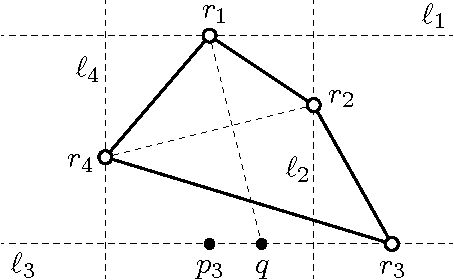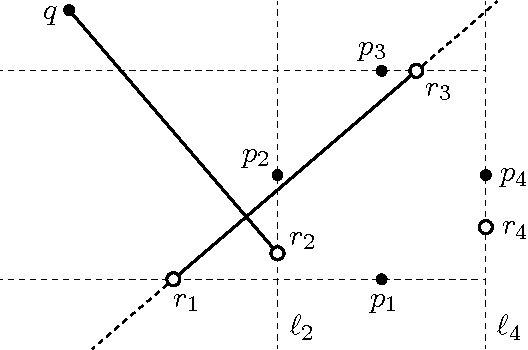Square Formation by Asynchronous Oblivious Robots
Paper and Code
May 20, 2016



A fundamental problem in Distributed Computing is the Pattern Formation problem, where some independent mobile entities, called robots, have to rearrange themselves in such a way as to form a given figure from every possible (non-degenerate) initial configuration. In the present paper, we consider robots that operate in the Euclidean plane and are dimensionless, anonymous, oblivious, silent, asynchronous, disoriented, non-chiral, and non-rigid. For this very elementary type of robots, the feasibility of the Pattern Formation problem has been settled, either in the positive or in the negative, for every possible pattern, except for one case: the Square Formation problem by a team of four robots. Here we solve this last case by giving a Square Formation algorithm and proving its correctness. Our contribution represents the concluding chapter in a long thread of research. Our results imply that in the context of the Pattern Formation problem for mobile robots, features such as synchronicity, chirality, and rigidity are computationally irrelevant.
 Add to Chrome
Add to Chrome Add to Firefox
Add to Firefox Add to Edge
Add to Edge